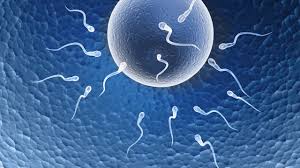Human fertility is the ability to produce or sustain a numerous progeny, the result of various factors of biological nature (age, health status, functioning of the endocrine system), cultural (prescription about sex and marriage, division of labor, type and rate of occupation), which cause abrupt changes from one situation to another.
Human fertility can be affected by different factors, such as age, the onset of diseases, etc. There are several treatments to protect fertility in both men and women. Although it is easier in men than in women.
Human fertility can be affected by different factors, such as age, the onset of diseases, etc. There are several treatments to protect fertility in both men and women. Although it is easier in men than in women.
Female fertility has been interpreted by various civilizations as an essential feature. It may be the case that the husband rejects women for infertility, and marriage is annulled. Male fertility has an incidence similar to female infertility, and remained unknown for a long time, attributing all responsibility to women (this is part of patriarchal society).
Human fertility problems:
One in four couples of reproductive age have difficulty conceiving. This relates to a number of factors, but age of women is very important.
It is proved that the age of women has a direct relationship with fertility. From age 35, the chance of a spontaneous pregnancy is 15% each month, and decreases to 10% after 40 years.
The woman has 400,000 eggs at birth, but after puberty, women ovulate one egg every 28 days. The problem is the age of the eggs as they have the same woman, therefore, their quality gradually diminishes.
In man, the situation is different, producing new sperm throughout their lives. Although recent studies have shown that the quality thereof, would also be affected, but to a lesser degree than eggs.
There are other causes for the deficiency in human fertility, which have to do with both members of the couple, and can be classified into:
- tubal obstruction
- low sperm concentration
- low sperm motility. Or altered sperm morphology.
- Endometriosis.
- Ovulatory dysfunction.
- Immune factor.
- Unknown cause.
Treatments for human fertility:
There are many cases where human fertility is affected, for example in severe pathological conditions that require aggressive treatments such as radiation or chemotherapy, tissue producers gametes, sperm or eggs are destroyed.
What is human fertility
For men there are several simple solutions such as sperm cryopreservation, involving assisted reproduction.
In women it is more difficult, due to lower production of eggs per cycle and removal difficulties, and complications posed by cryopreservation techniques.
There are several options for preserving fertility in women - Cryopreservation of embryos: a woman's eggs are obtained and fertilized in vitro. Then they are frozen for later implant them in the uterus of women.
- Ovarian tissue cryopreservation: is removed and frozen ovarian tissue sample of women, and I replanted once it has completed cancer treatment. The process of cryopreservation offers drawbacks. there is also risk of ischemic damage.
- Ovarian suppression: are hormonal treatments that protect ovarian tissue through the jamb or radiotherapy.
- Transposition of ovaries: ovaries are repositioned using surgery to remove them from the exhibition area.
- Conservative gynecological surgery: may involve removal of the cervix, by surgery, but keeping the uterus.
The period of fertility in women
The period of fertility of women is variable and will produce changes over the years. In addition to calculating the fertile days with ovulation calculator, there are certain natural symptoms of women also possible to determine those dates.

Post a Comment